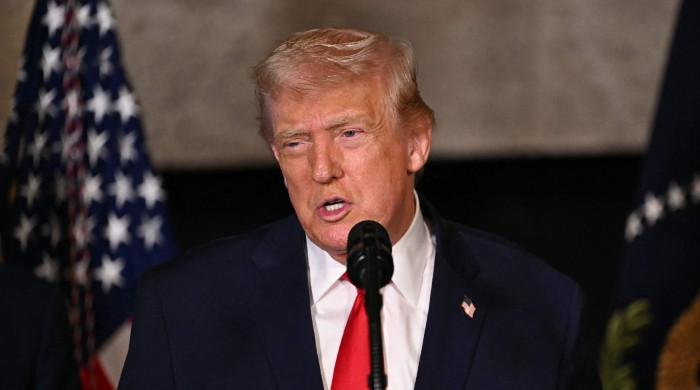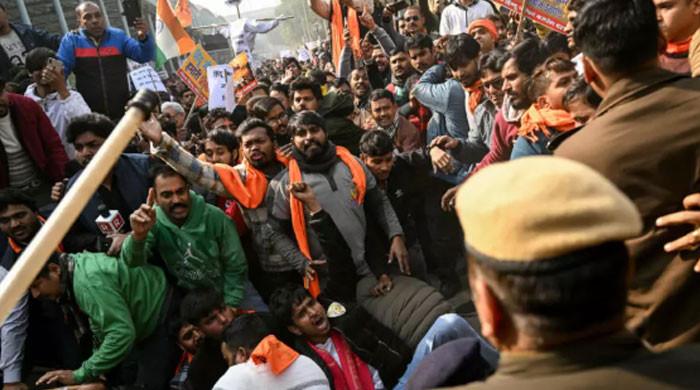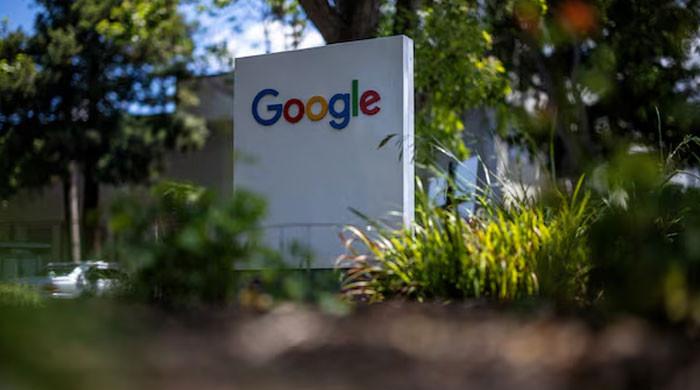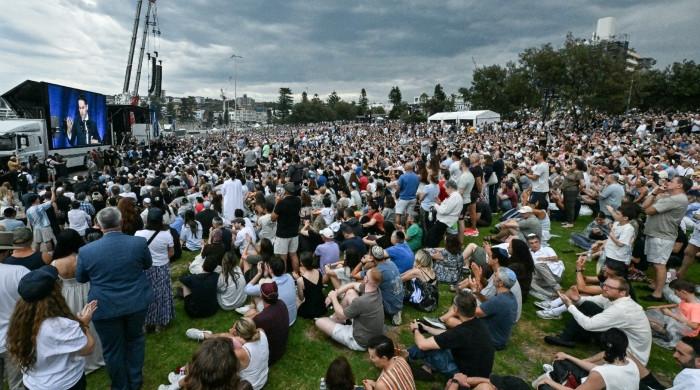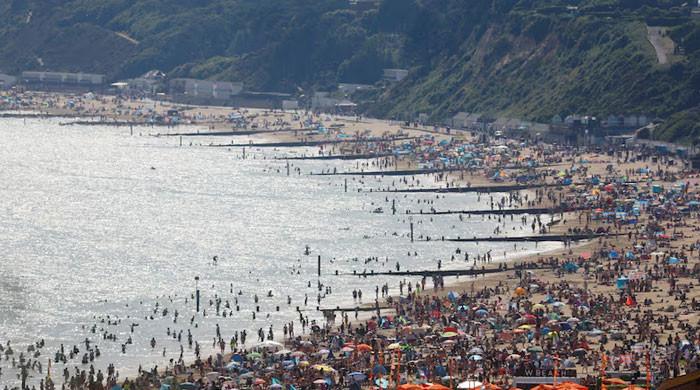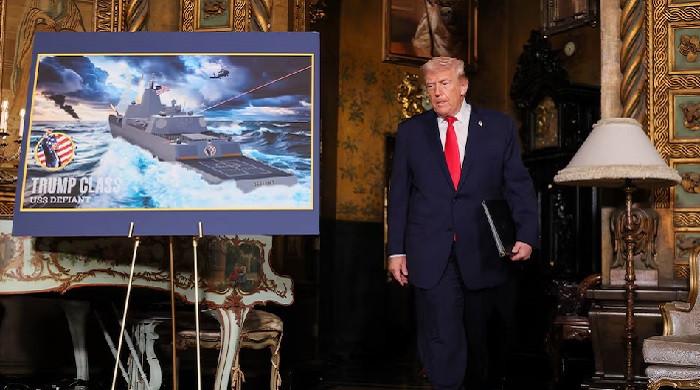British MPs demand right to self -determination for people of IoK
It is for the first time that the debate was held for 3 hours focusing only on the issue of human rights in Kashmir by Indian occupation forces
January 20, 2017
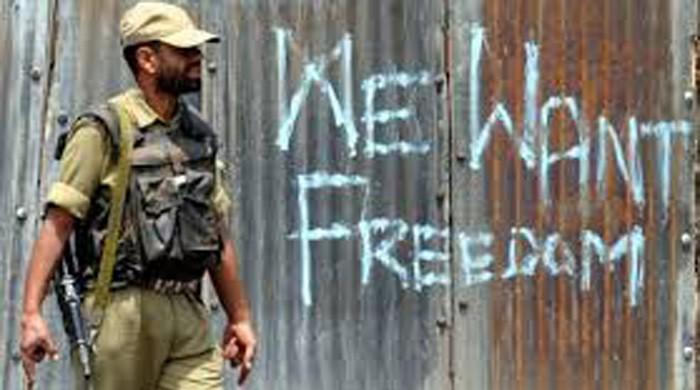
LONDON: The people of Indian occupied Kashmir must be given the same right to take control of their future as the one exercised by the UK in the EU referendum, British parliamentarians of all parties demanded during a historic debate in the main chamber of the House of Commons.
It is for the first time that the debate was held for three hours focusing only on the issue of human rights in Kashmir by Indian occupation forces. The debate was convened by David Nuttal MP, the chairman of the all-party parliamentary group on Kashmir, in the wake of rising violence by Indian authorities in the occupied region, use of pellets guns on thousands of unarmed Kashmiris, rape and torture of women and indiscriminate killings of Kashmiris of all age groups for protesting against Indian occupation. The MPs from Conservative, Labour, Liberal Democrats and Scottish National Party called on the Government to encourage both India and Pakistan to work towards a peaceful solution with the interests of Kashmiris at its heart.
Tory MPs David Nuttall and Philip Davies said Kashmiris should be afforded the same right to self-determination as was given to the British people in the form of the Brexit vote. David Nuttall MP said he appreciated the government needed to "tread a careful path" to avoiding harming relations with India or Pakistan “but a candid and true friend is one who sometimes says things that the other friend may find unpalatable”.
Intervening, Mr Davies said: "Surely it is not a question of supporting either the Indian government or the Pakistan government, it's about supporting the people of Kashmir. Just as you and I campaigned for many years for a referendum to decide whether or not our country should be governed by the European Union and part of that, surely the people of Kashmir should be afforded the same liberty of actually deciding how they want to be governed for their future too?"
Mr Nuttall said he agreed that it was about the human rights and aspirations of the occupied Kashmiris who don’t want to live with India. He said: "I wish to make it absolutely clear that I do not see this issue as being about taking sides and saying that if you are a friend of Kashmir you are not a friend of India. This problem must be resolved by peaceful means. I want to see the people of Kashmir being given the right to decide their own future, the right to self-determination, a right so historically exercised by the people of this country on the 23rd of June last year when the majority voted to leave the European Union."
Nuttall, leading the backbench debate on the issue, said there is a feeling in the Kashmiri community that Britain has a responsibility to try and remedy the situation.
He said: "It is the fact Britain was responsible for the partition which leads many in the Kashmiri community to believe this country could and should be doing more to try and help resolve this matter."
A cross-party group of MPs led by Mr Nuttall is calling on the Government to raise allegations of breaches of human rights in Indian occupied Kashmir at the UN and to encourage India and Pakistan to start peace negotiations to establish a long-term solution on the governance of Kashmir based on the right of the Kashmiri people to determine their own future.
Conservative MP Steve Baker (Wycombe) said the conflict is a "legacy of the British empire" and the Government "should acknowledge our historic responsibility" and do more to help resolve it.
He said lessons can be learnt from the Brexit referendum in the UK, which showed that long-standing issues of sovereignty and self-determination can be solved.
Although he warned that if a referendum on the future of Kashmir is held, serious thought must be given to who can vote and the potential violence that could erupt as a result.
He said: "The other issue, which is an issue of seriousness, is as we saw in our own country, in the United Kingdom where politics generally proceeds no further than harsh language, that passions ran extremely high. And I think in a region of the world where live conflict amongst major powers, nuclear-armed powers, is a risk, I think we have to ask ourselves, how would a referendum in Kashmir proceed peacefully, not just during the course of the campaign but afterwards as well."
Conservative MP Nusrat Ghani (Wealden) said the UN has "willfully side-lined this dispute for too long" and called for a renewed international effort to resolve the conflict.
She also criticised the use of pellet guns by security forces, which she said has injured civilians - leaving many blinded.
She said: "In Kashmir, pellet guns are being used by security forces. The Indian government has advised that the use of pellet guns should be rare and only in pressing circumstances.
"Yet the central reserve police force continues to use them persistently. These guns cause life-threatening injuries, brutally blind people and so far over 9,000 people have been injured."
Labour MP Virendra Sharma (Ealing, Southall), who has received a large number of votes of Pakistanis in the past from Southall area, defended Indian atrocities against the innocent people of Kashmir and came out as the spokesman of Indian government. He hit out at "hyped media accusations" and said, promoting boos from the parliamentary gallery, there was a lot of “mischaracterisation of the conflict”.
He said the Indian army is in Kashmir to protect civilians, like the British Army in Northern Ireland was during the Troubles.
He said: "The threat of communal violence looms large, an ever present threat for millions. This is why we see images of soldiers across Kashmir, they are there to protect citizens of all stripes - people who want to go to work, school or university are only allowed to do so under the protection of the Indian army."
Shadow minister Shabana Mahmood told MPs the use of pellet guns by Indian authorities was "a brutal response".
She said: "Nobody in Jammu or Kashmir has voted to be hurt, to be injured, to be beaten up, to be raped, to be blinded or to be killed.
"Pellet wounds are brutal, they are a brutal response by the Indian authorities, they send a brutal message to the Kashmiri people and they leave brutal scars."
The MP for Birmingham Ladywood added: "The legacy of empire demands that we do more."
Labour MPs Stella Creasy (Walthamstow) and Naz Shah (Bradford West) said the Government should be pressing the United Nations to hold an independent inquiry into human rights abuses in the region.
Ms Shah said: "To our shame, we raise this issue with both sides, but every time any member of this Government has been challenged to raise this issue directly at the United Nations, as far as we can tell it has been politely declined, politely deflected and politely ignored."
Tory MP Bob Blackman (Harrow East) defended Indian action against the people of Kashmir and blamed militant groups for the violence while giving clean chit to India. He talked about his Indian-state sponsored visit to the occupied valley and claimed that he said leaders in Europe and India had issued joint concerns about terrorist groups operating in the region, such as Islamic State, Al-Qaeda and others. He attempted to blame Pakistan for the troubles in Indian occupied Kashmir but the MPs reminded him that the movement for freedom was indigenous and had nothing to do with Pakistan while Pakistan has always morally supported Kashmiris.
Foreign Office minister Alok Sharma said India had reviewed its use of pellet guns in crowd control.
He said: "The results of that review have not yet been shared publicly, but I do understand that alternative methods are now being used. I believe that since last September, pellet guns were replaced with chilli powder shells as a preferred non-lethal crowd control device. From media reporting, it appears that the number of fatalities and injuries have seen a decline since then."
Mr Sharma added: "The British Government believes that it is for India and Pakistan to find a lasting solution to Kashmir, taking into account the wishes of the Kashmiri people. Of course, we stand ready to support both countries in this goal, but it is not for the UK to prescribe a solution or to act as a mediator."
The debate was attended by 70 MPs but 29 made the contributions. Amongst the other speakers were MPS: Khalid Mehmood, Imran Hussain, Philip Davies, Robert Felalow, Lilian Green Wood, Ruth Smeeth, Nusrat Ghani, Verender Sharma, Simon Danzack, Steve Baker, Vernon Coaker, Shabana Mahmood, Bob Blackman, Naz Shah, Chris Leslie, Gil Furniss, Paul Blumffield, Holly Lynch, Liam Byrne, Stella Cracy, Tracy Brabin, Kelvin Hopkins, Lyn Brown, Tom Brake, Jim Shannon, Tasmina Ahmed, Liz Migginas, Alok Sharma.




